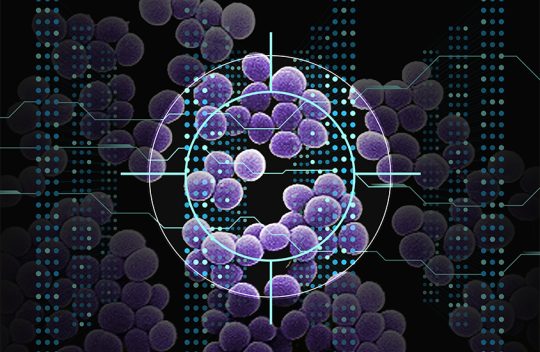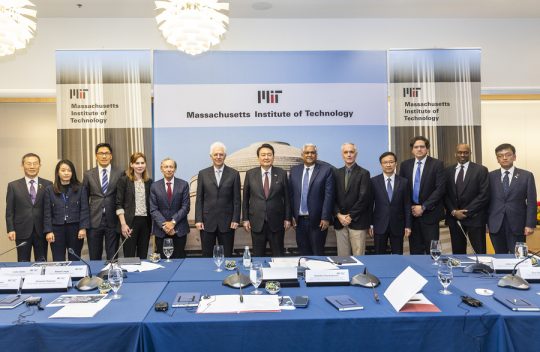Tag: James J. Collins

When an antibiotic fails: MIT scientists are using AI to target “sleeper” bacteria
Since the 1970s, modern antibiotic discovery has been experiencing a lull. Now the World Health Organization has declared the antimicrobial resistance crisis as one of the top 10 global public health threats.When an infection is treated repeatedly, clinicians run the risk of bacteria becoming resistant to the antibiotics. But why would an infection return after proper antibiotic treatment? One well-documented possibility is that the bacteria are becoming metabolically inert, escaping detection of traditional antibiotics that only respond to metabolic activity. When the danger has passed, the bacteria return to life and the infection reappears.
“Resistance is happening more over time, and recurring infections are due to this dormancy,” says Jackie Valeri, a former MIT-Takeda Fellow (centered within the MIT Abdul Latif Jameel Clinic for Machine Learning in Health) who recently earned her PhD in biological engineering from the Collins Lab. Valeri is the first author of a new paper published in this month’s print issue of Cell Chemical Biology that demonstrates how machine learning could help screen compounds that are lethal to dormant bacteria. Learn more

A year of discovery
Why it matters: the world is in urgent need of new ideas and inspiration to address chronic and infectious diseases, climate change, energy demands and other complex and consequential problems.Here are some of the biggest discoveries and advances of 2023...
AI-assisted discovery: The push to use AI for science notched some advances in 2023 — including solving a famous math problem, finding a new class of antibiotics and predicting the structure of nearly 400,000 possible new materials, which are needed for next-generation batteries, solar cells and computing. Learn more

Using AI, MIT researchers identify a new class of antibiotic candidates
Using a type of artificial intelligence known as deep learning, MIT researchers have discovered a class of compounds that can kill a drug-resistant bacterium that causes more than 10,000 deaths in the United States every year. Learn more
President Yoon Suk Yeol of South Korea visits MIT
President Yoon Suk Yeol of South Korea visited MIT on Friday, participating in a roundtable discussion with Institute leaders and faculty about biomedical research and discussing the fundamentals of technology-driven innovation clusters. Learn more
